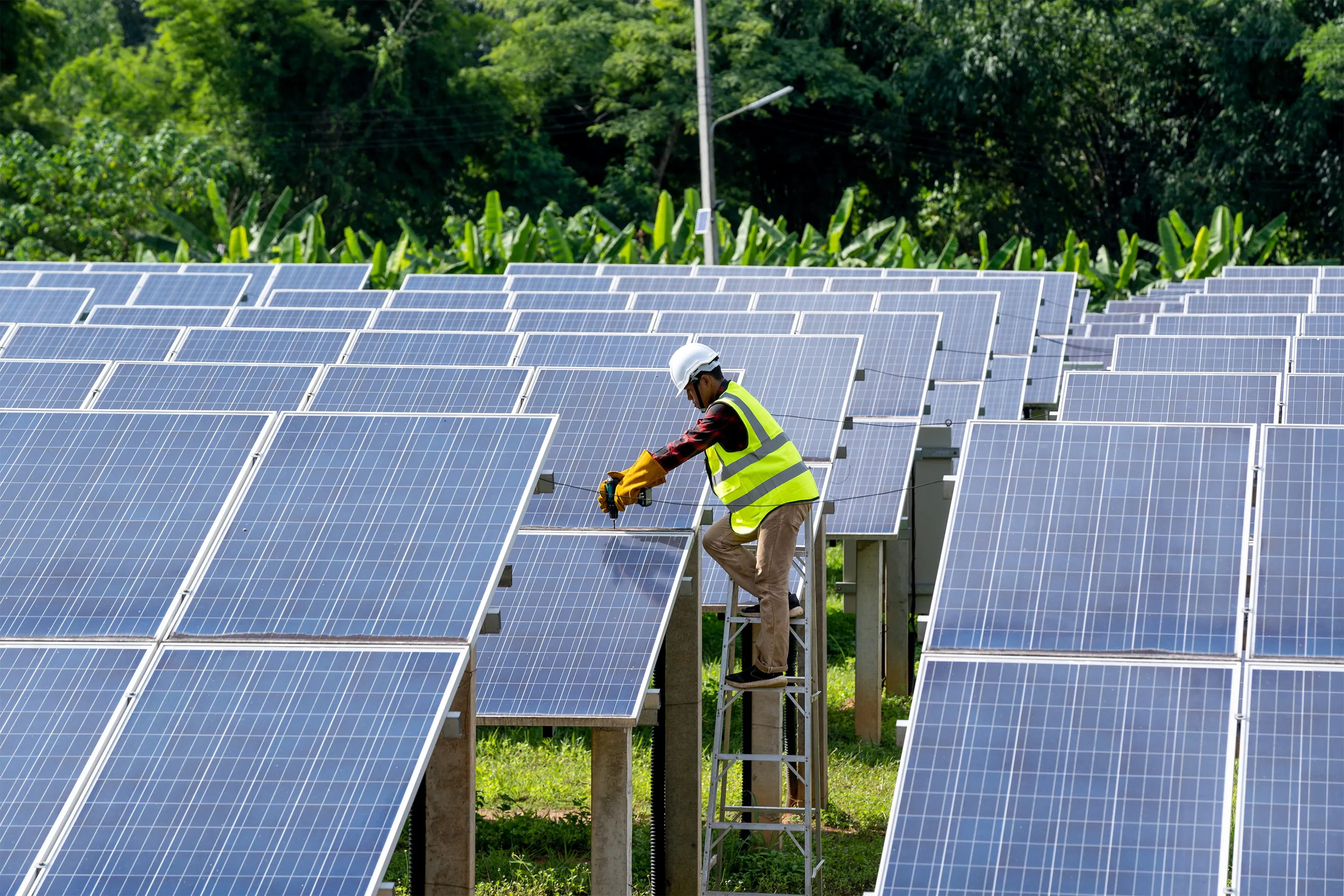Solar Panel Maintenance PA: Our Firm Specializes In The Setup And Management Of Photovoltaic Energy Systems
History and Advancement of Photovoltaic Panel Business
The creation of photovoltaic panel companies can be traced back to the 1800s when Alexandre Edmond Becquerel found the photovoltaic result. Would he have thought of how his discovery would reinvent the way we harness energy?
Early Beginnings

In 1954, Bell Labs established the very first practical solar battery. This marked a significant milestone in the history of solar energy. They were initially utilized to power space satellites, but who knew this was simply the beginning?
Development and Development
- In the 1970s, an energy crisis resulted in increased interest in renewable energy sources, including solar power.
- By the 1990s, improvements in technology and increasing ecological awareness led to the development of solar panel business worldwide.
A New Age
As we entered the 21st century, the solar industry saw an exponential development. The need for clean and sustainable energy caused a new era in the photovoltaic panel market.
Interesting Realities
- The world's very first solar energy station was built in 1982 in Hisperia, California.
- By 2019, solar energy had ended up being the world's fastest-growing source of power.
The journey of solar panel companies has been exceptional, hasn't it? The future holds immense potential, with constant improvements paving the method for a sustainable future. Can we imagine a world powered entirely by solar power?
Moving Forward
Today, photovoltaic panel companies continue to innovate, striving for more efficient and cost-effective options. The development of solar power has actually come a long method, and yet, the journey has actually simply begun.
The Core of Solar Panel Production
Ever wonder what enters into producing those shiny, sun-loving solar panels? The procedure is as excellent as completion product (Top Rated Solar Installers PA). High-purity silicon, the primary ingredient in solar panels, undergoes numerous changes to guarantee its effectiveness and sturdiness
From Sand to Silicon
Crystalline silicon, the foundation of the majority of photovoltaic panels, originates from basic sand. It's an interesting journey, isn't it? The sand goes through a high-temperature response with carbon to form silicon. This isn't simply any silicon. The silicon utilized in solar panels is "solar-grade," with a purity of 99.9999%. It's this purity that makes it possible for the panels to successfully transform sunshine into power.
Ingot Formation
Once the silicon is pure enough, it's time to form ingots. Photo a big, cylindrical block of strong silicon. How is this accomplished? Through a process called Czochralski process, where the silicon is melted and after that slowly recrystallized. It's a sluggish dance of science, resulting in a solid item that is nearly as pure as the raw silicon itself.
Slicing into Wafers
The ingots are then sliced into wafer-thin pieces, like slicing a loaf of bread. Each slice is a possible solar cell, waiting to harness the power of the sun. Did you understand that the silicon wafers are just about 200 micrometers thick? That has to do with half the thickness of a human hair! The procedure needs accuracy and perseverance, but the outcome is a set of wafers all set to be become solar cells.
Developing Solar Battery
With the wafer ready, it's time for the magic to happen. The silicon wafer is 'doped' with other components like phosphorous and boron to create an internal electrical field. It's this field that enables the conversion of sunshine into electricity. Complex, isn't it?
Assembly and Quality Assurance
Solar battery resemble puzzle pieces that come together to form a solar panel. The cells are soldered together in a grid-like pattern, then covered with a protective layer of glass. The last action involves extensive quality assurance checks. After all, it's important that every photovoltaic panel carries out at its peak, would not you agree?
Expert Idea
Always remember that even the most optimally made solar panel can lose effectiveness due to dirt and particles accumulation. Routine cleaning can considerably improve your panels' performance.
Comprehending the Ecological Effect of Photovoltaic Panel Companies
Ever contemplated the ecological footprint of a solar panel company? Green innovation, such as solar, has changed our energy landscape, but what about the behind-the-scenes effect?
The Production Process: A Double-Edged Sword
The manufacturing process for photovoltaic panels requires a substantial amount of energy. This procedure, referred to as 'em bodied energy', can be deemed a form of 'energy financial obligation'. It's a little like obtaining today's sunlight to power tomorrow's energy requirements. Stress not, the energy payback time is frequently much shorter than you 'd believe!
- The energy payback period for photovoltaic panels is generally 1-4 years.
- After this period, the energy produced is basically carbon-free.

Life After Decommission
And what takes place when a photovoltaic panel reaches the end of its life expectancy? Can it simply be tossed into the trash? No, that would not be very green, now, would it?
A practical service is recycling. While photovoltaic panel recycling is still in its infancy, it holds a world of capacity. Recycling not just keeps materials out of garbage dumps but likewise reduces the need for brand-new basic materials.
Accountable Sourcing: More Than A Buzzword
Where does the silicon come from, you ask? The industry's demand for silicon and rare minerals can lead to damaging mining practices. Responsible sourcing is for that reason necessary to decrease harmful ecological effects.
Lowered Carbon Emissions: The Bigger Image
Let's not forget the larger photo: solar energy considerably decreases carbon emissions. Once set up, solar panels create tidy, renewable resource, offsetting their preliminary production footprint.
In short, the environmental effect of solar panel business is a complicated problem. With responsible practices, the promise of a cleaner, greener future is well within our grasp.
Financial Efficiency and Market Share of Photovoltaic Panel Business
Ever wondered why some photovoltaic panel business - Affordable Solar Panels PA outperform others in the market? What sets them apart? The crucial lies in their monetary performance and market share
Financial Performance: A Crucial Indicator
Financial efficiency plays an essential role in the success of any company. For photovoltaic panel business, it's no various. Strong monetary performance makes it possible for these companies to invest in advanced innovation, research study, and advancement, thereby creating premium, effective photovoltaic panels.
But how do get more info they attain this? With a focus on expense performance and strategic financial investments. Companies that handle to decrease production expenses without compromising on quality tend to fare much better in the market.
Market Share: A Measure of Success
Market share, on the other hand, is a direct reflection of a business's appeal amongst consumers. A high market share means more house owners are selecting their photovoltaic panels over competitors.
So, what's the secret dish for getting a bigger market share? It comes down to consumer complete satisfaction and brand track record. Business that focus on client needs and keep a positive brand name image are most likely to catch a larger share of the marketplace.
- Consumer Complete satisfaction: Solar panel business that deliver reputable products and remarkable customer support tend to have greater customer satisfaction rates.
- Brand name Credibility: A strong brand track record is developed in time through consistent shipment of quality services and products.
Financial Performance and Market Share: The Symbiotic Relationship
Surprisingly, the relationship between financial efficiency and market share is not one-sided. They feed off each other. A strong monetary efficiency can increase a business's market share, while a high market share can enhance monetary performance.
As a solar panel business, stabilizing these 2 elements is essential for long-term success. A company that overlooks either of them might find it tough to keep its position in the competitive solar market.
The Takeaway
What does all this mean for you? Whether you're a house owner looking to install photovoltaic panels or an investor considering the solar market, understanding the financial efficiency and market share of solar panel companies is essential. They are key indications of a company's health and capacity for future development.